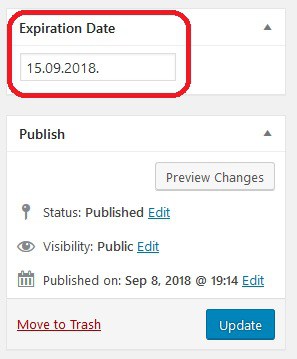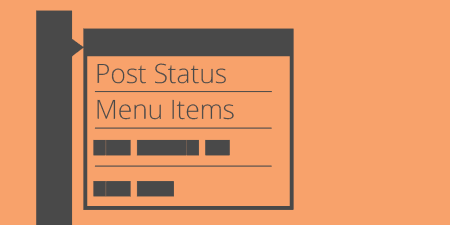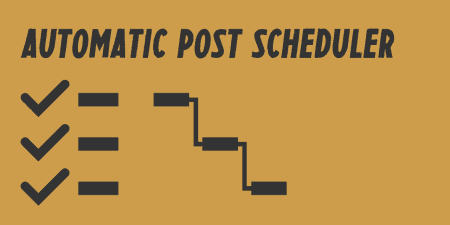WordPress has built-in sticky post functionality and a conditional tag to match it. Category Sticky…
If you’re running a site that posts a lot of new content which concerns up-to-date themes and is obsolete after a while, it’s a good idea to have an option to remove posts when enough time has passed. The Post Expiration Date plugin helps you with just that.
What is Post expiration date?
The Post expiration date is a free and simple plugin that adds the option to move posts from published to drafts on a set date. This way you’ll help just a little bit with speeding up your site and have a clean and efficient published database free of clutter and unneeded posts that have gone irrelevant over time.
How does it work?
Like we already said above, after activating the plugin a new option will be presented to you while creating a new post to insert an expiration date. When the set date is passed the post will simply revert back from published to draft status.

Set the date you want your published post revert to draft status
This feature can become useful when you’re operating a campaign for a new product, or a post with links that you know are going to be updated. This way, when you know what the future holds for a certain post you don’t have to keep track of it and then delete it manually – you’ve already set everything up before publishing so you can focus on other matters.
The great thing about it is that when the post expires it doesn’t get deleted, it reverts to being a draft. This way you still get to keep it, but your time-sensitive post is removed, so your visitors don’t have to bother with it. Of course, if you ever were to need it again you’ll just need to publish it one more time and it’s visible to everyone again like nothing ever happened.
Costs, Caveats, Etc.
The Post expiration date plugin is fairly new being released just about 3 weeks ago and even so, it has over 100 active installations. Because of its one-note nature, no updates have been released as of yet, but even so, the plugin does everything it’s supposed to do. We predict it staying the way it is with the only potential changes coming in the form of keeping up with WordPress updates if they end up conflicting with the code.






